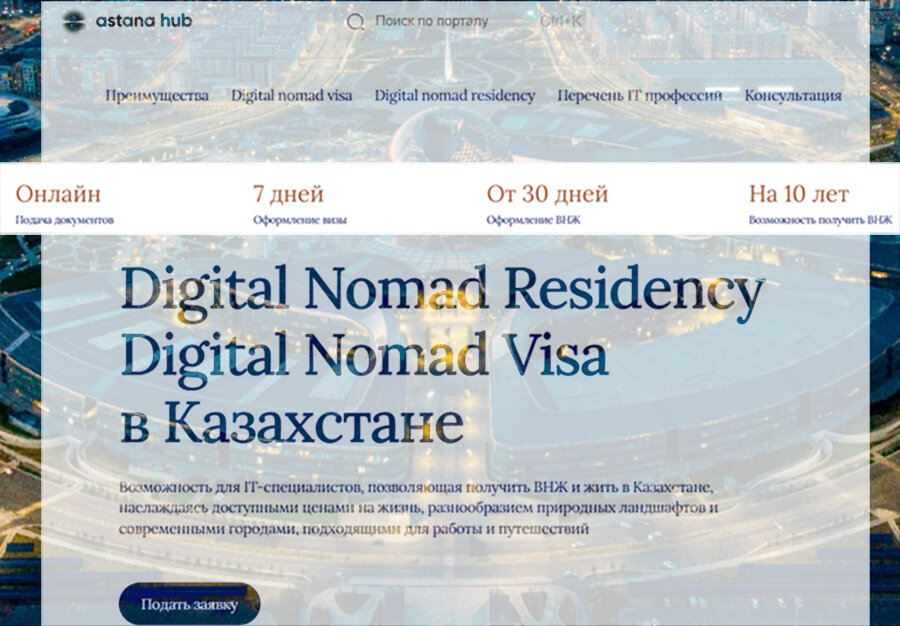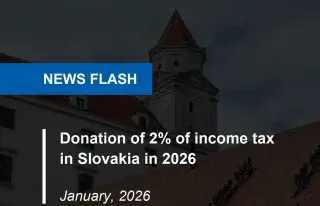read also
Kazakhstan Launches 10-Year Digital Nomad Visa with Fast-Track PR for IT Specialists

Kazakhstan has introduced a new 10-year digital nomad visa designed for foreign IT professionals under the Digital Nomad Residency program. The initiative offers a simplified pathway to permanent residency and is processed entirely online. This makes Kazakhstan one of the few countries offering a structured multi-tiered visa framework for remote workers.
Currently, there are three distinct visa options available:
1. Digital Nomad Visa (B9-1)
Aimed at qualified IT professionals with specialties listed in Kazakhstan’s official priority occupations list. The application process begins on the Astana Hub platform, requiring:
- A scanned copy of passport
- Resume
- Portfolio
- Motivation letter
- Criminal record certificate
- Passport-style photo
Upon approval, the applicant receives a petition from the Ministry of Digital Development confirming IT specialist status. The next step involves registering the petition on eGov.kz and submitting a translated, notarized passport, photo, criminal record, and the petition itself, signed via digital signature (EDS). The process takes up to 45 days.
2. Neo Nomad Visa (B12-1)
Tailored for remote workers with foreign employers. Requirements include a stable income of at least $3,000/month, bank statements, a criminal background check, a tax declaration, and valid health insurance. This visa is valid for one year and renewable. Family members can apply for residence as dependents.
3. B9 Visa
For highly qualified professionals in medicine, education, science, innovation, and the creative industries. Successful applicants can obtain permanent residency based on verified achievements and professional status.
Policy Goals & Economic Impact
The initiative is a joint effort by Kazakhstan’s Ministry of Digital Development, Ministry of Foreign Affairs, Interior Ministry, and the National Security Committee, with support from the TechnoPark Foundation.
According to Kazinform, the digital visa categories are part of a broader talent migration strategy. Officials estimate that just 500 Neo Nomad Visa holders could generate over $7.3 million annually. Experts believe the digital nomad scheme may also help legalize existing foreign freelancers after the discontinuation of the visa-run mechanism in early 2023.
The Ministry of Tourism predicts that Kazakhstan could boost its IT services exports to $1 billion by 2026 thanks to these new migration policies.
Comparison with Global Programs
While the Neo Nomad Visa requires a high income threshold (>$3,000/month), this is stricter than comparable programs in Europe — for example, Spain and Italy have lower thresholds, and Montenegro’s starts at just €1,600. However, the B9-1 Digital Nomad Visa remains highly attractive due to its fast-track PR benefits and lack of income requirements.
Officials view this visa policy as a step toward positioning Kazakhstan as a regional hub for international tech talent. Deputy Foreign Minister Roman Vassilenko emphasized the goal of integrating Kazakhstan into the global workforce. Deputy Tourism Minister Yerzhan Erkinbayev added that this aligns Kazakhstan with global trends in digital mobility and flexible employment.








